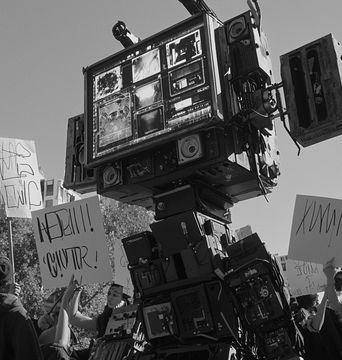OPENAI'S UNRELEASED TEXT-TO-VIDEO MODEL SORA ALLEGEDLY LEAKED BY ARTISTS IN PROTEST OVER UNPAID WORK CLAIMS!

OpenAI, the artificial intelligence research lab, is in the spotlight over the controversial yet groundbreaking text-to-video AI model titled Sora. This promising tool has stirred a tempest within its community of testers, with culminated into an unplanned breach in their research and development (R&D) process. The mounting tension could well mark a novel chapter in the ever-evolving discourse on labor rights in the digital age.
To the uninitiated, Sora is an ambitious AI model developed by OpenAI that has the potential to revolutionize the fields of streaming, advertising, filmmaking, and countless more domains where video content is pivotal. By rapidly converting textual input into compelling video outputs, Sora holds the promise to render the cumbersome video production process drastically succinct.
However, the model has recently been caught up in a storm of criticism. Some participating beta testers have accused OpenAI of exploiting them, with allegations of "unpaid R&D and PR," and participating in "art washing"—a concept where a corporate product is given undeserved artistic credibility. These volunteers, primarily artists, claim they are being used as an unpaid labor force to refine and promote OpenAI's technological product.
Adding fuel to the controversy is the beta testers' complaint about OpenAI's strict content approval process. As per this regulation, "every output needs to be approved by the OpenAI team before sharing". This decision on OpenAI’s part is seen as a creative restriction by the testers, further escalating the tensions.
In what appears to be an act of dissent against the alleged exploitation, a group of Sora beta testers managed to leak access to Sora, flinging open the yet-to-be-released AI model into the public domain. This unexpected development has further dimmed the official release date, which according to OpenAI's executive, was hinted to be within this year.
Responding to these allegations, an OpenAI spokesperson emphasized the voluntary nature of the participants' involvement in Sora's research process. Furthermore, the spokesperson reiterated OpenAI's commitment to ensuring that Sora remains a useful and safe tool for the community.
Despite these assuaging remarks, the controversy enmeshing Sora raises essential questions for the future. With the traditional understanding of labor rights being challenged in the digital era, there is a pressing need to reevaluate and redefine labor policies in tech industries. Further, the content approval requirement imposed by OpenAI triggers a discussion on creative freedom vs. quality control in AI-driven outputs.
The future of OpenAI's Sora and its implications on labor rights and creative freedom remain as a potent topic of intrigue. The looming question is: How will OpenAI navigate through the storm and deliver Sora into the world, ensuring utility and safety while respecting the creative freedom and labor rights of its contributors? Only time will tell.